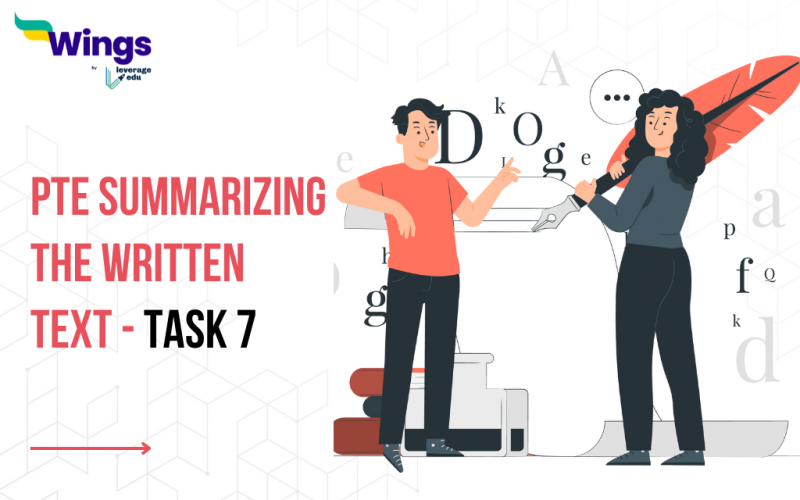Q- Summarize written text is a short-answer writing task type that tests reading and writing skills. You have 10 minutes to write a one-sentence summary of a reading passage. You will do 2-3 Summarize written text tasks which depend on the exam to exam.
Many people have problems with irony in their everyday lives and as it is used or deployed in literature. We learn early on at school about “dramatic irony”; that is, we are told when the audience of a play is aware of some situation or circumstance or has information that one or more characters in the play do not. If you like, you share a secret with the writer – you are in the know. Perhaps the irony is not so clear-cut as you go about your daily business.
Here’s an example: your neighbour draws your attention to how lovely the dandelions and daisies growing on your lawn is. Now, to someone unfamiliar with the care and attention many English people give to their gardens, this might need a bit of explanation. Lawns are grass cut and regularly rolled so that a professional golfer can practice putting on them. Daisies and dandelions are weeds. For a moment – but just for a moment – you wonder how serious your neighbour is being. Does he really think the weeds are lovely, or is he telling you – in a rather superior way – that you’re a lousy gardener?
An irony, however, usually needs an audience; and not only does it need some people to get the point, but it also very much needs there to be people who don’t. There is, it has to be said, a rather undemocratic air of superiority about it.
The irony is slippery, sometimes difficult to get a firm hold on, and can easily backfire, like a joke that falls flat. Those who don’t like irony – usually those who don’t get the point – argue that, in a world that is already difficult to deal with, why should we want to complicate things further? Why throw everything you say into doubt? Besides, there’s an unpleasant air of intellectual snobbery about it, which doesn’t go down well anymore.
Answer- Irony, which refers to interacting in a superior manner, necessitates not only the viewing public who can understand the point but also those who cannot, creating an air of superiority. This has led opponents to claim that irony makes things more complicated today and may significantly contribute to intellectual snobbery.
- Know All About PTE Summarise Written Text to Score High in Your PTE Exam
- How to summarize written text in the PTE exam.
Write your answers in the comment section given below and get them evaluated by the PTE experts. 👇
Need help preparing for PTE? Check out the best PTE preparation courses in the market offered in a live training environment by trusted educators. If you want to ease your study abroad journey, then call us at 1800-572-130.
 One app for all your study abroad needs
One app for all your study abroad needs















 45,000+ students trusted us with their dreams. Take the first step today!
45,000+ students trusted us with their dreams. Take the first step today!
